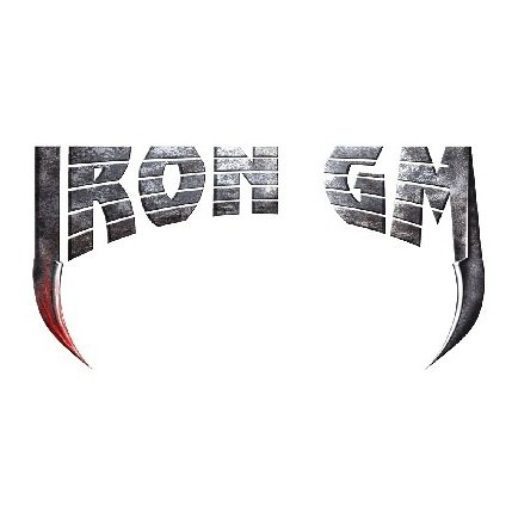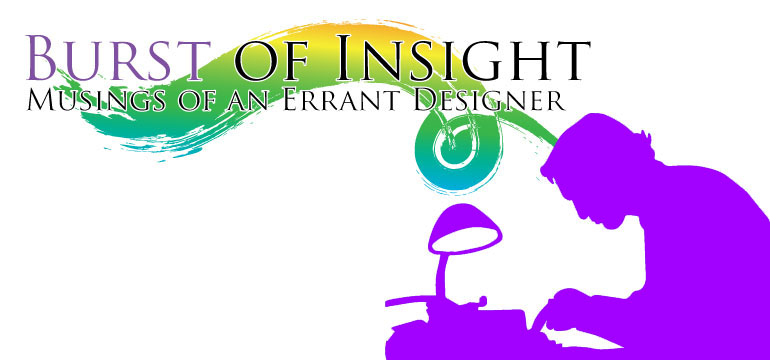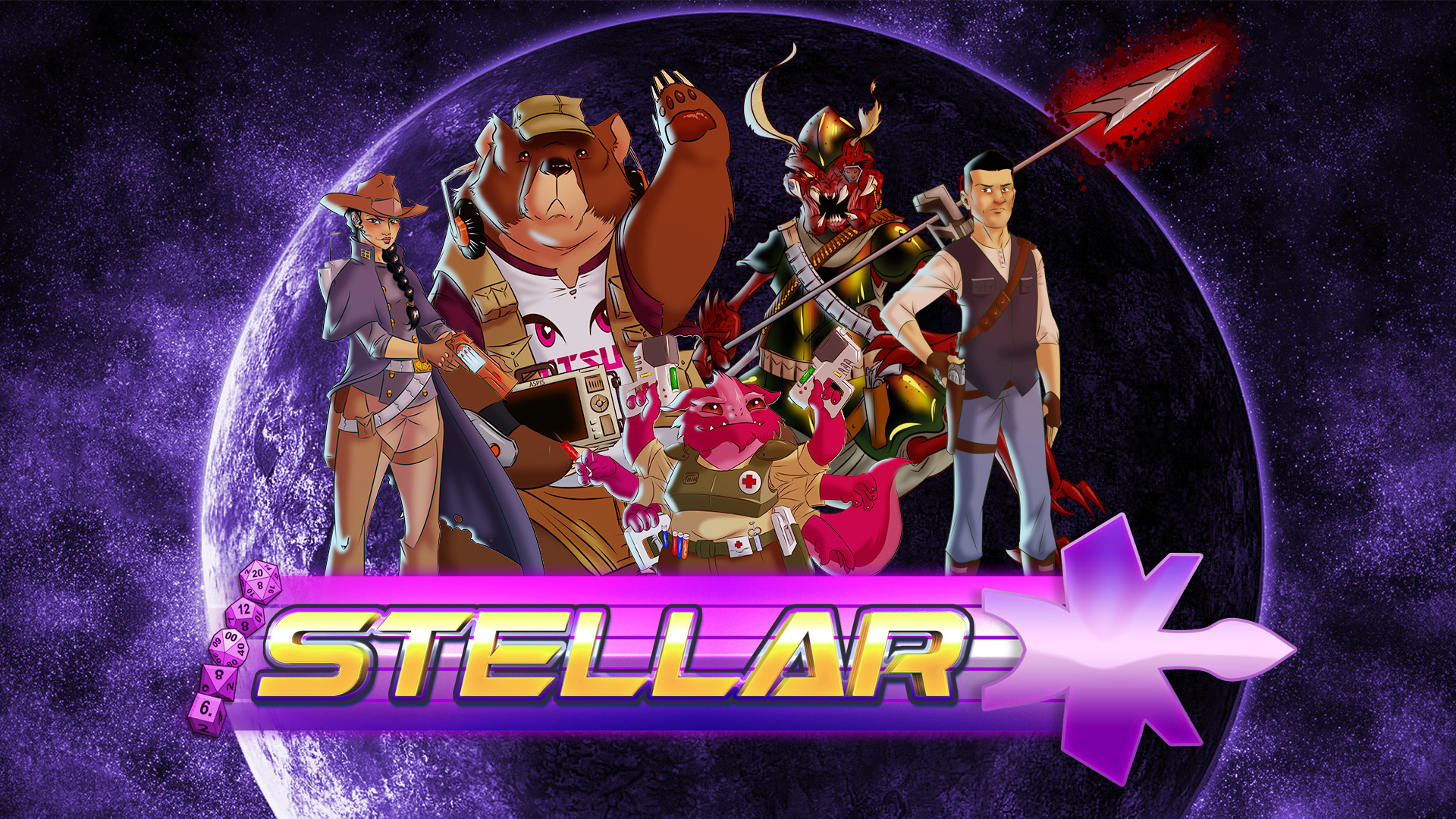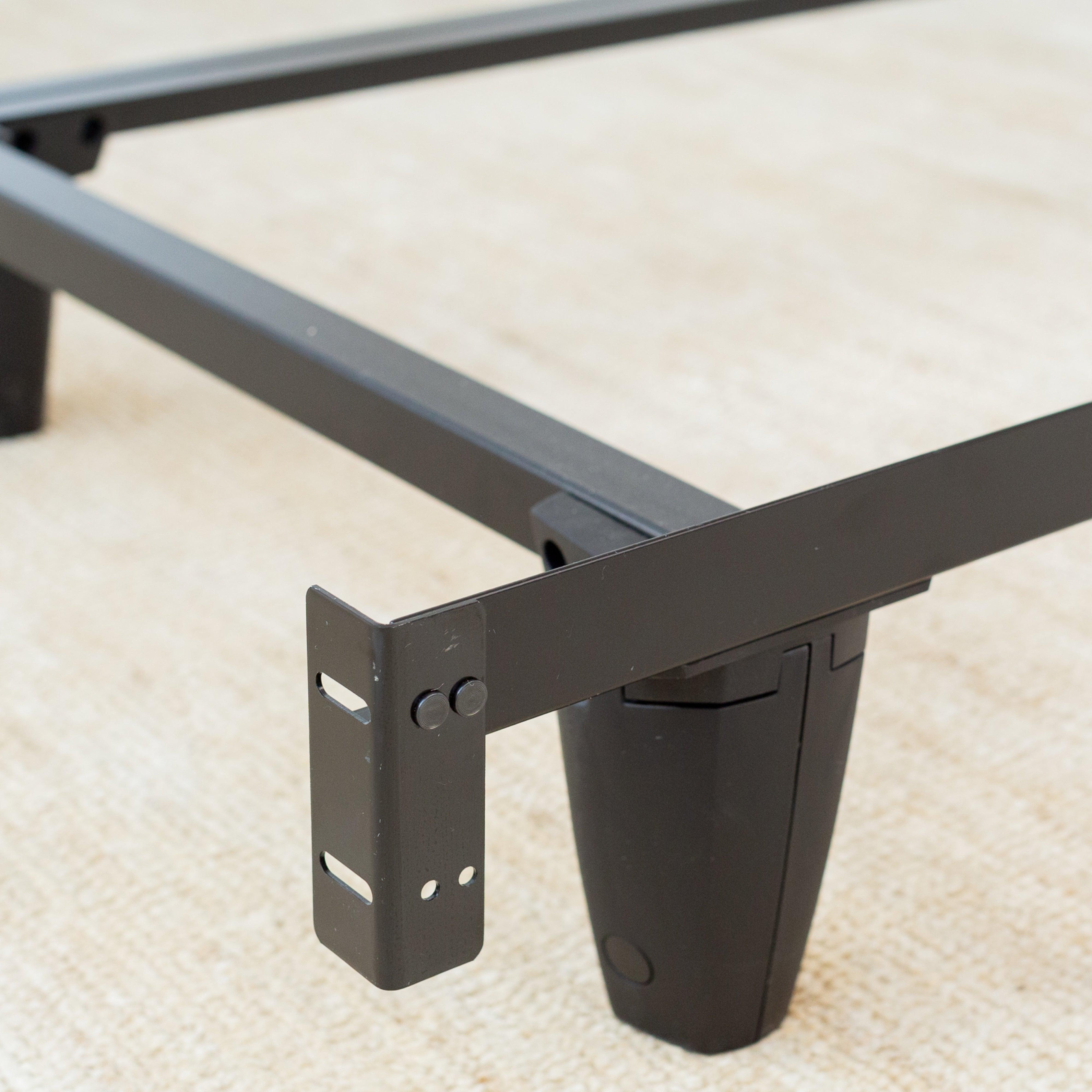For a cooperative hobby we’re still a pretty competitive bunch whether it’s old school tournament modules scoring a party’s progress through an adventure, the American Idol styled RPG Superstar (and its successors) helping the industry find new designers or Iron GM, that like TV’s Iron Chef unveils three surprise elements contestants must include in their finished product. On TV those ingredients must be used in each course of the meal while at conventions Iron GMs must use each element to craft an adventure for a table of randomly selected players.
Today, we’re going to meet three of these Iron GMs: Steven T. Helt, Chris [That Guy], and returning to our Ask the Experts series Alan [Dramatic Pause] Venable. These three champion GMs are going to share their experiences with competitive gaming and their tips to make us all better GMs.
Andrew: Can each of you take a moment to tell introduce yourselves to our readers?
ThatGuy: My name is Chris. I’m 39 years old from Bangor, Maine. I’ve been into role-playing games since I was introduced to Rifts at 16 years old and it’s been both my Jiminy Cricket and The Devil on my Shoulder ever since.
STH: I’m Steven T. Helt. I’ve been a Pathfinder designer for about six years and a GM for about 30. I live in Tulsa and work as an estate planner. I love big epic campaigns, great villains, and ambitious high-level play. Thanks for having us!
Andrew: Thank you all for agreeing to this interview.
Dramatic Pause: Hello my name is Alan Venable, I have been a role-player since freshman year in high school, playing on the bus to and from school. I quickly realized I liked being the GM too and ran games for my friends in between classes all day long in high school. That’s about 20 years of make-believe under my belt. Oh, and I won Iron GM in 2016.
Andrew: What can you tell our audience about Iron GM.
ThatGuy: It’s friggin’ amazing amounts of fun. It’s a 6-hour event where game masters are given a random table of people, three plot elements, and an hour to write a four-hour adventure. Place in mixing bowl, whip vigorously, celebrating like crazed Vikings every time you get a natural 20, but at the end, only one game master comes out of it alive. Be it a player or a game master, it is an amazing time. It is a daunting challenge that I think every game master should test themselves with at least once.
STH: I was always an enthusiastic GM, but Iron GM absolutely has made me better. I’ve won the event twice (as has Chris) and the energy in that room is always a blast. Some guys have a pro wrestling approach to the competition, which is fun. I just put my head down and work though. I believe some of the best GMs (in the history of the game) are in that room Saturday every GenCon. Love those people and have strong relationships with many.
ThatGuy: I’ve heard it called a family on more than a few occasions.
Dramatic Pause: Iron GM is my GenCon family for sure. I have established a lot of love for the insanely talented group of people that create epic adventures in an hour from three little words. Any event where everyone has a blast and can be entertained for six hours has got to be on to something right?
Andrew: Tell me a little about what it’s like to be an Iron GM contestant.
ThatGuy: it’s like meeting a girl for the first time on some kind of bizarre blind date, but instead of just one, there are six of them, and every one of them needs to walk away from that table happy. It’s nerve-wracking, exciting, and a whole bunch of other adjectives that I can’t think of right now.
STH: Iron GM is my favorite event every year (unless I’m hosting one!). In the beginning, it was a dozen tables or so. Smaller room. Cozier. My first time was the second year they’d done the event. My players gave me the moniker Ancient Sensei (I’d introduced myself as a longtime GM who encourages players to be epic). I think I have an advantage in that the first couple of years were more intimate. So I planned big scenes, the room was less noisy. It was easier to learn about and relate to players. As it became more of a show with bigger personalities I got to balance that sort of showmanship with the more humble approach. My third year I invited a fun player from an event I ran to the event, and he became a friend and our only three-time winner. I’ve recruited friends and talented GMs, some of whom also won. I really like that the level of competition remains high, the event always sells out. During mustering before we get started, I’m always encouraging first time GMs. The event has gone from competition to self-improvement class, to family for me.
Dramatic Pause: Iron GM is the reason my wife and I go to GenCon. I even proposed to her before I knew I won in 2016. The following year I commissioned a championship belt made, which resides with each year’s champion.
It’s an awesome feeling competing in something you love, and creating five to seven brand new friends each year. Every year I try to make the experience memorable for my table, sometimes even planning my entrance for a month before the big day. It’s the most terrifying and euphoric feeling the day of competition, but at the end of the day, more than a hundred people are having fun playing games in that room.
ThatGuy: The belt fits really well, by the way. Thank you.
Andrew: How is competitive game mastering different from just game mastering or are you always running your games like there’s a belt at stake?
ThatGuy: it’s kind of like describing Wolverine’s healing Factor compared to Healing naturally. With competitive game mastering, all of the stress and excitement of planning out a game happens all in the span of an hour instead of over the week. But, if you run a crap game in the iron GM, you don’t have to see those people again. In your Weekly game, you got people staring at you wondering, “Oh shit, is this gonna suck again?”
But the belt is cool though. That’s definitely an incentive. I mean, who doesn’t love a belt like that?
STH: I’ve apologized to my players because I feel like my Iron GM tables always get me at my best. My home games have always had incredible players. Mechanical savants. In-character roleplayers. I’ve been fortunate to live in towns with great gaming communities. But in home games, you have work, kids, the other players have their own things they bring in every week. At Gen Con, everyone is there to game. Things that interrupt your focus don’t interfere as much. You play with strangers, some of whom become fast friends, so the only thing that’s there is the story you’re telling that day. No inside jokes. No tension breaks or family walking through the room. Just a story and the authority your reputation gives you. I love that dynamic.
But I’ve learned so much from Iron GM that has made me better in every game I run. Keeping energy levels up. Starting with action. That skill set makes me better at cutscenes and splitting up the party. The spontaneous nature made me better at instantly assigning names and personality to NPCs. Every GM has to learn how to roll with the punches and not punish players for upsetting your careful plan. The Iron GM experience forces you to develop tricks and habits that make you better at leading, plotting, pacing, and improvising.
ThatGuy: I like how Steve’s responses are so eloquent, and I’m just a rabid chihuahua.
STH: That’s the difference between my Neutral Evil and your Chaotic Neutral.
Dramatic Pause: Never underestimate the power of a rabid chihuahua! Competitive GMing is an entirely different creature. I like to think of Iron GM as a great test of my improvisation skills. The ability to align with people you just met and run the best game they have ever played is not for the faint of heart! It’s a chance to seduce, scheme, and betray everything and everyone while keeping to a (hopefully) coherent one-shot plot.
At my home games, I tend to delve further into long, epic story arcs that take months for the players to realize the grand story. At Iron GM, everything is more immediate, raw, and urgent to get to the big bad. Competitive GMing allows me to go for the throat from the start, creating five-minute backstories for NPCs on the fly and perceiving what my players want from their five-minute backstories.
Though they are different experiences, always run games like there is a belt on the line!
Andrew: What’s your Iron GM prep look like? Before you even arrive at the con. Is there something you do? Stuff you always bring?
ThatGuy: I either over or under prepare every year. This year was under-prepared. I’ll bring any books that I think I’ll need, like Pathfinder and Dungeons and Dragons. My laptop is a must as well as a tiny jump drive with every idea I’ve ever committed in a game on it. In the hours before the actual event, I’ll listen to inspiring music, anything from Disturbed to Imagine Dragons. I’ll usually find a nice quiet place just to get my nerves under control. It’s all about putting my mind in a place where I feel like I am in control.
STH: I prepare ideas: scenes, ideas I might want to use some time. If an idea is exciting and matches well with the elements the Iron GM team gives us to craft our adventure, I have some ideas to slot into my story. But the idea is supposed to be spontaneous so I don’t plan full fights or plot points. Just shells of ideas. Like a group of villains who destroy an entire oasis in one combat and leave our heroes stranded in the desert. Or an old elven tower that exists in time so every door or balcony looks out on a different time period (and maybe a different army). Over the years you acquire a few scenes and settings that you enjoy and use them where they offer a memorable scene.
Dramatic Pause: As I said before, I plan my entrance, try to prepare with printed character sheets and the core rulebooks of the games I run. Dice and other little gaming aids (initiative trackers, pawns, maps, etc) Everything else is made up on the day.
Andrew: Let’s talk strategy. What does it take to win?
ThatGuy: The best advice I could give would be to make sure that your players either are or become the Legendary Heroes of your story.
I also like to come with pre-prepared hooks and NPCs. Especially villains. I love making villains.
STH: I have always tried to do something different…something to show I’m working harder than other competitors. The first few years, I incorporated every story element of every previous Iron GM year. So one year my 4-hour-long story (with zero pre-planning at all) included time travel, dragons, a wedding, flashbacks, frost giants, a funeral, mistaken identity, minotaurs, magma, a rakshasa, river rapids, a redemption theme, a Dream Theater reference (for myself), and a TPK to be different. That was the first year I won. When another competitor complained that it was too easy to write a story using so many elements (never mind that we never knew the first three before go-time), I started asking each of my players for a new story element. So these days I incorporate nine new elements I didn’t know before, plus my trademark Dream Theater reference. A funny story. My first year, I wanted all the neighboring tables to know what a great time my players were having. A little meta-competitiveness. I made them build 21st-level characters and we had a great time. Whenever one of my players confirmed a critical, I shouted “Utz!” and pointed at him, and the table yelled BONZAI!!”. Now that’s part of the regular environment for the event. It works against me because I am very ADD and the sudden shouts every few minutes can really shut my brain down. So…if the Bonzai thing is fun for you all, great. And if not, it’s totally my fault!
Aside from meta things to make an impression on players, you have to make sure each player is engaged and getting what they individually want out of a one-off game, you have to blend those so there’s a great group experience, AND you have to make their character important and make them laugh. Do those things and you’ll get your best reward—a table full of attentive players who are buying what you’re selling.
ThatGuy: I always get the ‘Why didn’t I think of that’ during the Player Olympics break at the 2hr mark. Especially talking to you, Steve, and Necessary Evil. Getting that time to reflect can help to shape the second Act.
Dramatic Pause: I definitely have felt that before. But the best advice I could give is to ask your players (sometimes directly, sometimes indirectly) what they want and what they enjoy, then do that.
Also, don’t try anything new, use the skills and techniques you know work. Competitive GMing is not the time to experiment.
Andrew: Do you pull your punches or go for the kill? How do you handle character deaths or TPKs at your table?
ThatGuy: I am, admittedly, a softy when it comes to player deaths. I’m trying to cull that instinct in my home games. But, at Iron GM, I have a rule: No Deaths until the Second Act, which is after the break. It has to be challenging, yes, but you don’t want a player who got an unlucky crit just sitting there for an hour. Part of the judgment is their enjoyment. So, if I have a danger of a TPK so soon I’ll have them get kidnapped for a sacrifice or make them switch characters and take on the roles of those seeking revenge. Anything to keep the game going and keep the players interested.
But when you get to the Big Boss Bad Guy, gloves gotta come off. It’s something that I have struggled with as a Gamemaster since i first sat behind the screen.
STH: First, why is all of my text this red-brown color? Did I choose this? I’m changing everything to purple. You know. Cause royalty. : P
[Writer’s Note: I invited the participants to use colored text to make it easier to denote who’s text was whose in the shared document. Steve totally chose red-brown before changing it all to purple…that you all can’t see. Sorry about that but the line was pretty funny so kept it.—Andrew]
STH: MUCH better…now…I don’t like pulling punches. Especially in one-off games. I believe encounter should be cinematically described so the players are terrified. Set an atmosFEAR so they see an action/horror scene instead of numbers and miniatures. That helps create a sense of danger. Now they fight harder. Try to use only the most cinematic abilities of a creature. Make them watch themselves die in the bodak’s eyes before they make their saving throw. I run my Iron GM games at high enough level that the players can bring each other back if dying isn’t the plan. Then again, I have had two intentional TPKs in my Iron GM experience. The first year I won I killed the whole party in the first scene and then handed them notes letting them know it wasn’t over. They spent the rest of the adventure touring Hell and realizing they were brought in untimely to act as outside agents in a political scheme where no devil could be trusted. The second time, the players asked if they could destroy the world, but weren’t really up to the task. They sacrificed themselves at the end to interrupt their own scheme and destroy an NPC who turned from ally to rival as they (the players, not the PCs) realized this wasn’t the thing they wanted to do. If death doesn’t serve a purpose (like a failed jump check), then I never let it happen. If it serves a purpose, then I use it like any other tool.
Andrew: what cool things have you seen other competitors do that made you think, “wow!” or “I should try that.”
ThatGuy: I can’t really nail down any specifics, but you probably cuz my brain is a little flighty. I always get a kick out of the different interpretations of the three plot elements, the further outside the box the better.
STH: My good friend Erik (Iron GM Necessary Evil) is our only three-time winner. Every year past his first year he makes a big deal of leaving before the three story-elements are announced. He goes to get a drink or spend a dime in the exhibit hall while his players make their characters and text him questions. Then he gets the three elements when his game starts and incorporates them spontaneously. It’s not that high a degree of difficulty but it’s his schtick and he works it out to be very obnoxious and funny. And I think that prepares his tables for his sort of pro-wrestling heel approach to the event. When he gets uppity, I remind him I invited him to Iron GM after I TPKed him and his friends in the DnD Open. But…seriously Erik’s over the top approach is a lot like Chris Pierce. Plenty of positive aggression, a little attitude with the players. Charisma and confidence and making sure you’re players know they are the stars of the show are the keys to a good score and a chance to place in this very tough event.
ThatGuy: Steve, I always thought your incorporation of all the elements from the past was always kinda badass. Your games seem to have that old school brutality when we’re sharing.
STH: I think one great thing about my Iron GM family is that, despite the veneer of heels and smack talk, there is a lot of humility. A lot of willingness to appreciate what the successful GMs do to up their game. Alan and Jill and Erik and Chris are all great about that. The big talk is all good fun, but the recognition of elite skills is always there. Chris is saying nice stuff about me here and I just wanted to recognize him for that.
Dramatic Pause: Everyone has their own techniques. I think the common theme for all of us is that we make the players feel like the heroes they want to be that day. I have definitely stolen different things from each of the previous champions but twisted them to my own devices.
Andrew: What effect do you think the popularity of Critical Role, The Glass Cannon Podcast and other popular actual plays will have on the competition?
ThatGuy: I feel like a dunce. I’ve never actually checked out Critical Role, and I probably should. Everyone says that Matt Mercer is phenomenal Gamemaster.
But, I try not to let other ideas influence my own, otherwise, they’re not mine. Not really, you know? I got obsessed with the Tomb of Horrors for a while there and i think it hurt my creativity. But, that’s just from being a spaz.
But that wasn’t the question. Anything that draws attention to the hobby is a good thing. Gaming podcasts that highlight the hobby can never be a bad thing unless you have a bad group.
STH: Go back to the Tormentor, or through the arch, and the second Great Hall you’ll discover…
Between kids and day job and design work and trying to have a little fun for myself, I don’t really listen to a lot of podcasts. I used to appear on several and that was always fun. It made me aware of that side of the fandom, but I never made the leap to following many and I would like to change that. But Chris is right: anything good for the hobby is important. We (collectively) haven’t been the best ambassadors of our hobby over the years and the game is behnd where it should be in sales and fandom and public consumption. I reiterate the levels of skill and camaraderie in the Iron GM family are vital. Because so many gamers treat newcomers like they have no hope of being a great gamer. I play Magic to build jank decks and win with something that isn’t the current top tier meme deck. Why would I play Pathfinder if the people I see playing the game have toxic attitudes? We need fun events, families of influential minds selling the fun of the game, podcasts, great designers and publishers. And we need more of all of that yesterday.
Andrew: Once the competition is over (win or lose) how does competing in an event like Iron GM help your home game. What lessons have you learned that make your home games better?
ThatGuy: there’s always some element that I use in my iron GM game that tends to bleed over to regular games. It’s usually a singular element, like a cool fight scene or a monster that I thought-up on the Fly. I’ll refine it and put it into practice.
I tend to reuse NPCs and villains like a bachelor reuses dirty clothes.
STH: I feel I mentioned this above. If I had to narrow it down to one skill I’ve refined in the fires of Iron GM, it’s the ability to manage time and energy. It’s so vital in a one-off game to balance combat time and story/roleplay time and that improves my home game performance, too. Okay…two skills. I’m pretty proud of my ability to control multiple NPCs and tell a story by dividing players into groups (it’s always rewarding to split the party when I’m behind the screen, because we think about cinematics, not about the fastest way to kill everyone). Having to think quickly and remember characters that were only made an hour ago by complete strangers really hones your ability to jump from one scene to another and weave a story that benefits the whole group as they see the pieces unfold.
Dramatic Pause: ALWAYS run games like there is a championship belt on the line.
I’d like to thank our guests again for joining me for this Burst of Insight Ask the Experts interview. If you enjoyed this or have further questions about Iron GM or competitive Game Mastering the discussion is just getting started. Tonight Live on the MarloweHouse Twitch feed we’ll be picking up the conversation at 9:00 pm EDT.







